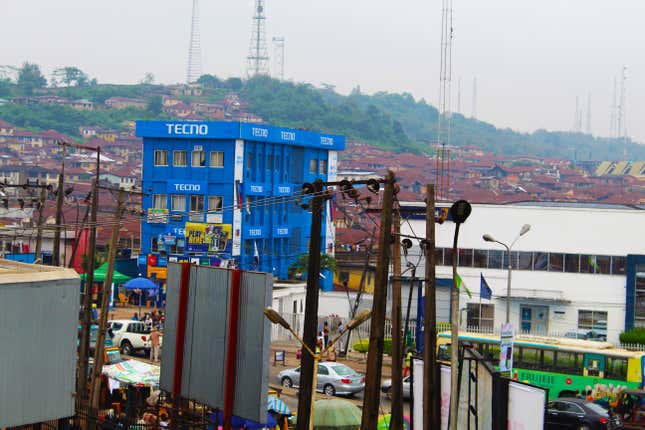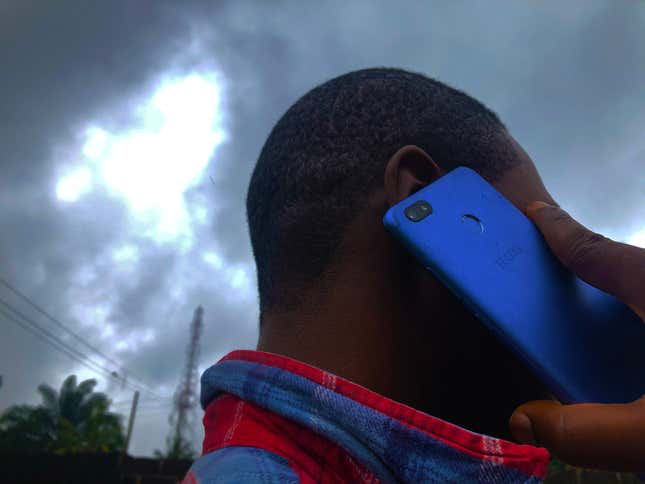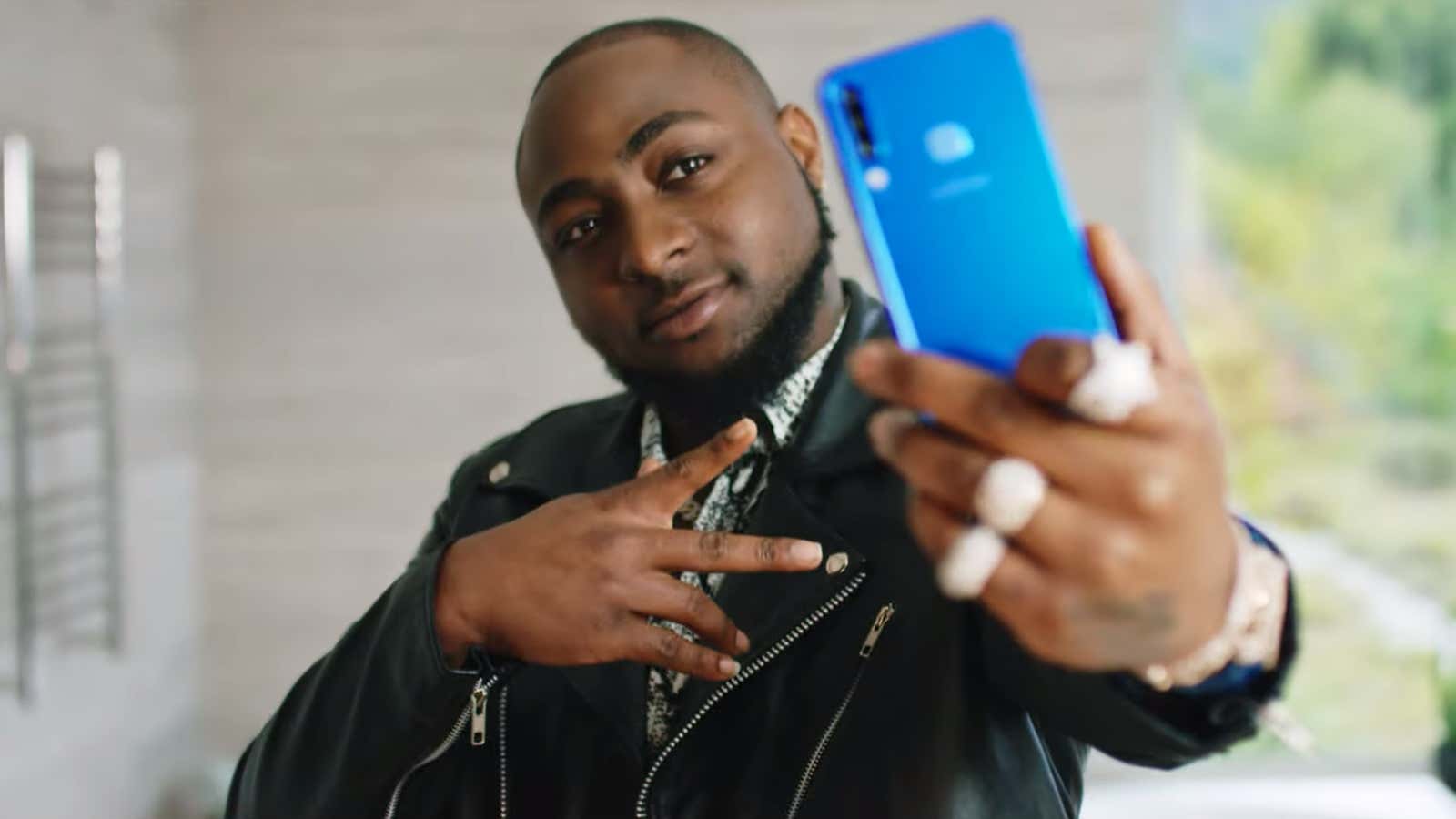Transsion, which has become Africa’s top-selling phone maker in the last year, launched its initial public offering on the Shanghai Stock Exchange’s Star market this week and its market value came close to doubling on its first day before setting down. Shares of the Shenzhen, China-based company closed up 64% raising about $400 million and valuing the business at around $6.5 billion riding on the waves of its dominance in Africa.
It’s a remarkable story for a Chinese company that has never sold one phone in its crowded, competitive home market.
Also notable is the fact that for consumers across Africa, the name Transsion means very little. Instead it is its brands that have become some of the fastest growing across the continent. The holding company has been very successful at positioning its three brands: Tecno, Infinix and itel for different segments of its markets across smartphones and feature phones. In June, all three brands featured high up the Top 100 Most Admired Brands in Africa list compiled by African Business magazine. Tecno, itel and Infinix ranked 5th, 17th and 26th respectively.
A key strength of all three is that unlike European, American or other Asian brands whose phones were designed primarily for their home markets, Transsion has built most of its phones primarily for African consumers and it has paid off handsomely.
Transsion has had huge success in Africa’s biggest consumer market with its canny blend of mass marketing and brand awareness. Nigerians consumers sing the praises of all three brands.
Philip Towo, a middle-aged quality assurance officer was out early on Tuesday (Oct. 1) to buy a phone at Solat Telecoms, a mobile phones retail outlet in Ibadan, the bustling southwest Nigerian city three hours from Lagos. He was looking to purchase the Tecno Spark 3 Pro. This isn’t his first Tecno device, and he said it will not be the last. “I love the brand because it provides a good value to price ratio.” The phone, which retails for the equivalent of $130, has plenty of features that would make it competitive with even the latest iPhones , including iPhone 11 which costs up to ten times more.
Even with middle class consumers, price is key especially in a market with few replacement or insurance plans for lost phones. For Dele Ayobami, a doctor at the University College Hospital in Ibadan, Infinix became an obvious choice because, given his history of losing phones, he needed something advanced, but which he could probably afford to replace if he lost it again.

Bigger impact
In addition to the competitive pricing of its phones, Transsion has focused on designing its products for the African market including features such as phone cameras better calibrated for darker skin tones in low light and long battery life in countries with poor electricity supply. And in order to keep its costs down and thereby lower the end user price Transsion leaves out high-end features such as artificial intelligence assistants or cloud storage. It also understands that for many users in Africa, the phones, particularly features phones, have to be priced as low as $10.
Ibidun Ayoade, a petty trader said she loved her $8 itel It2160 feature phone describing it as a vital part of her life.“It is my radio and torch light. I use two SIM cards on it and the battery can last for days.”
Even as smartphone use rises across Africa and other parts of the developing world, feature phones are expected to take a bigger share of the next billion internet users. Itel, Transsion’s feature phone brand, is already proving this to be true. In 2018, it launched an ad campaign in Nigeria during which it announced it has sold over 150 million devices.
Ultimately, Transsion has shown a knack for giving Nigerians exactly what they need, says tech industry insider, Wale Oladipo. “Transsion understands Nigerians are dissatisfied with their network service providers so most of their devices allow users to use two SIM cards.”

Closer to the customer
But while the bulk of its market is practical and price-conscious Transsion has invested plenty in brand marketing to win market share from longer established names including Samsung and Nokia. This year it unveiled an endorsement partnership for its Infinix smartphones with Nigeria’s biggest Afrobeats star Davido, a deal which industry insiders say was valued at up to $250,000.
As well as being TV commercials and being plastered on billboards around Nigeria’s big cities, Davido has also been engaging fans on social media. One Tuesday, which was Nigeria’s Independence Day and .a public holiday, the pop star was on Twitter inviting fans to take part in a competition to win phones.
But the promise of free phones might not be the most important part of Transsion brands’ ability to win user loyalty. Arguably, Transsion has got closer to Nigerian users than any other brand through its Carlcare Service, similar to the retailer Best Buy’s Geek Squad or Apple Store’s Genius service where users can have their phones repaired by a qualified technician.
With nearly 200 outlets across Nigeria, more than any other device manufacturer, it’s another customer touchpoint. “If you have warranty on your device, you can get the device repaired for free if you do not give it to any person to open the gadget before bringing to us,” says a staffer at the Carlcare Service center in Ibadan.
Sign up to the Quartz Africa Weekly Brief here for news and analysis on African business, tech and innovation in your inbox
